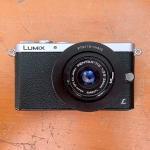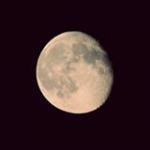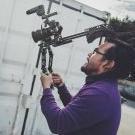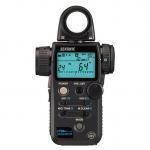Leaderboard
Popular Content
Showing content with the highest reputation on 11/13/2016 in all areas
-
Just spent an entire week traveling with the GX85, Nocticron, and 12mm Summilux. Wedding, Disneyland, Las Vegas. Ended up with about 400GB of raw pics and 4K video. It was such a joy to use. Such a different experience than traveling with a SLR...which I usually end up not taking on short overseas travels just because it's such a huge commitment to carry. Although the lenses were large, the GX85 body and it's unassuming size and shutter noise encouraged me to carry it just about everywhere I went. Also, it can take a picture in any light without flash due to the speed of the lens, stabilization, and a fairly well performing sensor in low light. I also love startup time, fast shutter (electronic and mechanical) and large buffer that just wants to be held down. I had 4 batteries with me. I averaged about 2 full batteries a day. Some days 3. But the 4th one was just reassuring to just have on hand just in case. Here's one thing that I love with this camera. Always have it set on continuous shot. And for every picture, try to take many shots. Then, when you review the pics, just hold the back button....it's like watching a timelapse of your entire trip already edited with highlights. Works great with raw photos and the previews are sharp. There were a handful of occasions where a flip out screen would have been very handy. I lost the lens cap for the Nocticron and dented the hood of the Summilux. I hope it's not too expensive to replace.3 points
-
I'm sorry but I'm out for work until tomorrow...I will make some video test on Monday!But I've to say that I've make a little superficial test and I can say that is really sharp..and...for sure we gain something like a stop(more or less)And the construction is really really well done!3 points
-

Promoting A SoCal Film Festival
Liam and one other reacted to fuzzynormal for a topic
The BSFF will be hosting a free screening of "Last Days in the Desert" during our festival. The screening happens the afternoon of 01/16/17. In addition, an after screening Q&A will take place with the director. http://www.borregospringsfilmfestival.org/about/ To have a film made in my town featuring the upper echelon of cinematic craft is incredible. Director Rodrigo García, cinematographer Emmanuel Lubezki, and actor Ewan McGregor; wow, not a bad list. Obviously, we feel blessed to have hosted this production and, quite frankly, we're still a bit in awe that it happened here. As y'all probably know, Lubezki has won the Oscar for best cinematographer the last three years in a row. Birdman, Gravity, The Revenant. All this talent along with the cast, crew, and location? Not too shabby. I'd like to invite any of y'all on the forum that are in this corner of the world (or even if you're not) to drive on over to our festival and attend. We're trying to become an extremely filmmaker-centric festival, and to have filmmakers there offering their feedback would be very welcome.2 points -

Advice Needed - Filmmaking Workshop
Zach Goodwin and one other reacted to Liam for a topic
sorry, yes I did finish the course, but I skipped most of the homework. I did a writing assignment - something like write a script for an hour without stopping to think, if possible, just let it flow (but I didn't listen to classical music during, like he said to). I had to let go of the idea that he was the authority instead of just a guy who has definitely made some good films, because that was stressing me out, and I would never have gotten past lesson two.2 points -

The mainstream media needs to be destroyed, and we need to do it.
Stanley and one other reacted to fuzzynormal for a topic
I respectfully submit that the polls were fine and more accurate than ever. It's was the media that misinterpreted them. If I was arguing about media bias, I'd submit this as Exhibit A. All I know is that RCP and 538 were reliable as usual. Other outlets like huffingtonpost (rolls eyes)... if you had half a brain you couldn't do anything but laugh at those guys and the way they broke down their interpretation of the data. Seriously, you should go read how they did it. They actually posted a story about it. It's amazing the thought process that they admit they used. BTW, that sort of mainstream outlet for "news," HuffingtonPost, relies on the greenest, youngest, and naive collection of scrubs to deliver their content. The hyperbole is hyperactive because there's hardly any adults left steering the ship. I'd say their aggregation is one step above visiting a Facebook political group's page, and that's being generous.2 points -
Just tell 'em that what they're shooting should be motivated by the story/emotion it's trying to convey. And always ask yourself the 'what?', 'how?', 'why?' of things. Everything begins with a 'set'. Doesn't have to be a legit studio set, it just describes the location you're going to have your shoot at. Pick/create a setting that itself supports the story; to make it believable within its own reality. Often when people are starting out, they care too much about the camera and technicalities and forget about things like location and wardrobe/props (like kids (in their everyday clothing) playing actual warfare (guns, bangs, bullet holes, blood) in their urban neighbourhood (without any real interaction with/response from their environment)). Once you have your story, create a universe where that story is taking place, be consistent and make it believable ('believable' doesn't neccessarily mean 'realistic', I could imagine a comedic take on previous scenario and kids are playing warfare with cardboard costumes on and having cardboard guns that shoot Skittles, people coming out of their homes to collect the yummy richochets). Thing is... you've got to really sell it to the viewer, suck them into your reality and make sure they're not thrown off. On set, before any legit shoot, there are checks for 'light', 'sound' & 'camera'. When everything is in order there's the call for 'action'. These are the principles you need to think about. The impact of light (and shadows), sound design (maybe more so a 'post' thing to think about (foley/SFX/ADR/music)), camera set-up/use and the actual action (it's about 'motion picture' after all). What mood are you trying to set and how do these individual elements work together to create said mood? When you introduce a change... make sure it's done with purpose. A lot of times when people get new gear, they start using it... because they have it, not because the story asks for it. It gets boring quickly if every shot is a slider shot. It's just too much. Don't be a slave to your gear, let the gear work for you. Do things with moderation or when it actually supports the story to do it otherwise. Think more about your framing, about the movement of the camera and that of the subjects... what can you do with that? What does it (subconciously) tell the audience/what impression would that scene make? I think we all agree... you can shoot something enjoyable on $0 budget and a potato, if that potato was used to tell a interesting and engaging story, that took its audience's mind offa things for a second and made them experience 'something'. Sometimes I say, it kinda is emotion pictures. It's conveying mood and emotion. It's visual storytelling. It's art. Like a painting, but one that is in motion. There's a mood, there might be a message, there's room for the viewers to explore these things for themselves, wonder and try to figure it out, but hardly anything ever is something completely random without a pay-off or reveal. Just make sure there's some motivation behind what you're doing and you'll be fine. In the end it doesn't really matter all that much if you shoot something on a RED or a Panasonic Lumix... in 1080p or 4K... or in potato quality. Just make sure that what's in front of the camera is solid and makes sense... that's the bigger picture. Technically... most you might ought to know, if applicable at all (smartphone or GoPro could just be as easy as hitting the red record button), is just the basics of light capturing. Framerate, shutterspeed, aperture & ISO, with the possible addition of light or ND... what each does and the relationship between them. Maybe lens characteristics (effects and use of focal length, compression, focus and separation). And how to edit everything together in post... especially when and how to make effective cuts. And well, it does help to make sure the audio doesn't completely suck before they show it to anyone. But that about it. Technical information is always at your disposal. Ideas and creativity... they need to be sparked. It's much more the global understanding why one would do certain things a certain way, rather than knowing specific technical details.2 points
-

Canon XC10 4K camcorder
Lamplighter55 and one other reacted to hyalinejim for a topic
Looks great! You've been having some nice weather in NY. I'm heading to Belfast today and will try to get some shots there. Why do you prefer CLog and Cinema EOS Standard to the others? I'd be interested in your thoughts on this as I'm slowly working my way through the various picture styles. I agree that CLog is best for recovering highlight and shadow detail, but I found a lot of banding compared to WideDR. But it does have compatibility with a huge selection of luts. WideDR looks similar to CLog but as sharper roll off into highlights and shadows and the colours are slightly different. With Cinema EOS Standard and Standard you can drop the ISO to 160 - although I suspect the white clipping point is the same as CLog and WideDR at 500 and shadow noise looks around the same. But people say ghosting is decreased. However, both these profiles have a video-ish saturation burnout in the highlights compared to CLog and WideDR. This can be fixed, a bit, in post by gently desaturating highlights. Now, they also differ greatly from each other in colour reproduction. Standard seems to me closer to WideDR and CLog. I'm not sure yet what to make of the colours in Cinema EOS Standard. Basically, all four of those picture styles offer the same clipping points, but they differ in how usable different parts of the dynamic range are: CLog is best for shadows and highlights but suffers from banding if you push it too far. They all give (sometimes dramatically) different colour reproduction. And ghosting is worst on CLog, followed by WideDR, and better on the standard profiles. Will continue testing! PS: For sharpness, the EBU paper says 3 is the max before aliasing begins to hit IIRC2 points -
A warning to others! Turn your back for a moment and things can go south pretty fast! This is a Sigma 18-35mm f1.8 in two bits! It seems it broke at the weakest point: THE PLASTIC The mount ring is metal, the lens body is metal, but the bit inbetween that houses the circuitboards is plastic and just snapped when it hit the ground, taking out the PCB too. Luckily all the glass is fine, looks like it nees a new plastic rear casing, some ribbons and a PCB. Still, always best to double check your support gear.1 point
-
The mainstream media needs to be destroyed, and we need to do it.
Don Kotlos reacted to Kisaha for a topic
All I heard is "patriotism", when you hear a lot of patriots, prepare for a war, because too much "patriotism" leads to border change and nationalism (the bad way). USA wasn't even a nation a few hundred years back and its only "natives"(which again, they came through the Berring Sea, so not truly natives in a sense) massacres and confined to a few miles of land and a few casinos, and some roles as extras to some western films. The Great British are an amalgam of Germanic and Northern European peoples that actually (oh, yes!) INVADED the British Isles, killed most of the Celtic populations, Picts and the such and then went on to conquer 1/3-1/4 of the entire world. History is a constant moving of human populations, I was expecting people from the US, that are ALL immigrants, should be more intelligent than that. It is funny that the two latest empires (British and US) in the history of humanity, that rule the world the last 3-4 centurys suddenly feel that they are loosing control of their actions and they abandon Europe (both of them), and will try to baricade against the rest of the world. Also, for someone said something false like "give billions for Greece" I would just like to inform them that Greece pays back with interest rates worst than any other nation in the world, and the Greek debt is something like 0,00000000000000001% of some other great nations of this world.1 point -

The mainstream media needs to be destroyed, and we need to do it.
mercer reacted to fuzzynormal for a topic
Well, I can't say I found Clinton to be any more trustworthy about what she said than Trump. More sophisticated in her rhetoric sure, but trustworthy? Eh.1 point -
It all depends on your business. In the last 6 years of pro video work I've never once delivered at 4k. For most work 1080p is still around.1 point
-

Advice Needed - Filmmaking Workshop
Zach Goodwin reacted to fuzzynormal for a topic
He's eccentricities have served him well. I never get the sense that he's playing a "wacky creative" role so much as he is an earnest guy and what you see is what you get.1 point -

Canon XC10 4K camcorder
kidzrevil reacted to hyalinejim for a topic
On page 11 there's a comparison of DR between Standard and C-Log: I don't fully understand the DR test, but I interpret this graph as showing that the clipping point at 100 IRE is earlier for Standard than it is for, but that the final maxed out clipping point at 109 is roughly the same for both. So if you're shooting standard with 100% zebras and you're seeing clipping, there could be quite a bit of info still in those superwhites. It just appears that Standard has less DR when you switch back and forth between it and C-Log because the area under the zebras increases. I think so too, from reading the EBU paper and from my own experience of tinkering with the files. I shot a lot of 4K C-Log yesterday at 205mbps and noticed a bit of chroma artifacting going on with FilmConvert. So I went back to the old fashioned way of grading and came up with a curve for C-Log that I really like and that doesn't seem to cause as much breaking up of the footage. Here it is if you wanna check it out: https://drive.google.com/file/d/0B1exEpCRAfgFVzlUaVByczNDR1U/view?usp=sharing I like this because it's quite contrasty but doesn't really crush shadows at all. Just set your white point and black point with curves or levels before this lut. I am seeing this as well with C-Log... must do some comparison with other styles with sharpening whacked up.1 point -
That may indeed be true. However, it is also largely irrelevant. Given the electoral system the American People vote under (and presumably understand and accept?) the simple fact is that the American people voted Trump into office. Just as the majority of people in the U.K. did not vote for Brexit - 51% of those who turned out did however. And it is futile for me as a Remainer not to recognise that.1 point
-
HDR on Youtube - next big thing? Requirements?
Damphousse reacted to Policar for a topic
I agree! I still have my ST60 Panasonic plasma even though it's old tech by now. I do think the state of the art OLED sets are better but my eyes aren't good enough to need 4k at normal viewing distances anyway, though most people I know are getting 4k displays now. The dithering on plasmas makes them a little soft to begin with, but the ST60 is fine. I saw HDR demoed on a smaller 1080p screen after seeing state of the art 4k projection and there's no comparison. I actually don't think 4k looks any better unless you walk right up to the screen or it's projected on a huge screen. I'm beginning to see the advantage for acquisition (for cropping in or whatever) but I think Netflix and YouTube and Amazon are sort of doing this for marketing rather than quality. It's a marketing thing meant to get people to replace their displays. I find it really laughable that people think this is something that matters. The old 1080p plasma screens have better acutance and the illusion of better resolution at normal viewing distances. However if you have the money a 4k OLED would be even better! Your plasma is 100 nits at full brightness. Brightest highlight, every setting maxed out to bright. I've seen two HDR displays demoed and one was 4,000 nits and the other was 10,000 nits or more .So imagine all that contrast and better resolution and better color detail and then on top of that it goes 100X brighter but not just brighter, the darker areas are still as dark and well-rendered (actually much better). The sun looks like the sun. It doesn't look like an image of the sun. It's amazing tech. On top of that you're getting much richer reds and greens. It's just a massive jump in quality. Fwiw, current-gen HDR-certified displays are 600 to 1000 nits. That's what's commercially available. So while those will look really really good.... They're nowhere near what's possible. I think energy conservation standards may prevent HDR from taking off, however. HDR projection standards will also never compare with home monitors in terms of contrast or brightness. So this may be something that never emerges as mainstream or properly-implemented. State of the art is 3XLED per-pixel (similar to Sony's "crystal led" technology) and LED efficiency is already high. This is very very expensive and still too inefficient for widespread use. OLED doesn't cut it for brightness/efficiency. Standard LED/LCD doesn't cut it for contrast. So we may be left with 1000 nit faux-HDR, which should look much better than anything you've ever seen, but nowhere near what's being demoed. Sony has 4000 nit displays at trade shows. That's very interesting because at that point it does feel very different. Only small areas of the screen can be that bright at once, but a large area that bright would be almost painful to look at. We'll see when and if this technology becomes commercially available. 4000 nits is a ways away and I wouldn't consider anything less than that representative of HDR.1 point -

Promoting A SoCal Film Festival
Liam reacted to fuzzynormal for a topic
Also, I'd like to open the thread to included the following question: What's the best and worst film festival experience you've had and why? For me, the worst experience was walking into a 200 square foot conference room and thinking, "this space is where my film is going to be screened!?" Then, on top of that, watching the screening get screwed up because a kid couldn't operate a DVD player or the audio system. And then realizing none of it matter because I was the only person that was going to be there. I hope I don't have to explain why that sucked.1 point -

Canon XC10 4K camcorder
Lintelfilm reacted to hyalinejim for a topic
Yes, but is your monitor showing what's in 100 to 109 IRE? Source: page 11 of Alan Roberts' EBU paper https://tech.ebu.ch/docs/tech/tech3335_s17.pdf On mine, all of the info is there sitting under 100 IRE on the waveform monitor as would be expected. Is your software somehow interpreting the footage as 16-235 levels? Can you upload a clip for us to check out?1 point -

Canon XC10 4K camcorder
Lamplighter55 reacted to Lintelfilm for a topic
Quick tip: I think there are a few XC10 users here using FCPX? Alex4D's free Unsharp Mask plugin works great. It's default sharpness is far too strong but if yopu apply it and then bring the radius down to about 1.9 and crank the "amount" slider up it really brings the detail out in a nice organic way. If you're using grain remember to stack it under (i.e. apply it before/top of the inspector) so it doesnt sharpen the grain too. This technique with a fine 4K grain (e.g. Film Convert's 35mm) on top of a low-radius unsharp mask gets fantastic results, great with 4K but even with HD footage too. For best HD results: upscale HD to 4K > add subtle unsharp mask > add a contrasty curve > add 4K grain = HD that looks very much like 4K! Yeah I really miss not having a waveform on the XC10. I really hope Canon add it with a firmware update.1 point -
Canon XC10 4K camcorder
Lintelfilm reacted to UHDjohn for a topic
I could be wrong and it could be the LUMA channel but I'm assuming it's like their DSLR's which all show the clipping in the green channel only but I'm pretty sure when I had the RGB parade up and was pointing at a 24 patch colour checker I saw how it reacted. In the situation you describe, which is going to be a tough test for any camera, your best approach is to use an external monitor with scopes and make sure you get a custom WB.1 point -
Canon XC10 4K camcorder
Tim Fraser reacted to UHDjohn for a topic
The Zebras work on the green channel so with blue sky you can be not showing any clipping but be very overexposed. ETTR is not a good idea with any in-camera profile as it's an exposure strategy for shooting RAW. With RAW you get as much info onto the sensor before clipping to maximise DR and keep out of the noise and then apply a tone curve in post production. With non RAW capture the tone curve is 'baked in' to the data so if it's a low contrast scene you will overexpose if you ETTR and you have to pull down the values in post but you are moving values to a different part of the tone curve where with 8bit they can get stretched out and cause banding. Like I said this camera needs scopes ( as they decided to do with the XC15) but more importantly an RGB parade so you can see the individual channels ( not sure if they have done this with the XC15) - or use an external monitor / recorder but this kind of defeats the ergonomics.1 point -
Canon XC10 4K camcorder
Lintelfilm reacted to mercer for a topic
This is why I stopped using 100% zebras and started using 70%. At 100% I could not save any of the highlights, they were gone. But I actually have had two cameras. BH accidentally sent me a return, but I tried it out and had those results. After speaking with a few people on this site, I was told to use 70% because of the whole 18% grey card exposure rule for C-Log. I was told, if you don't use a grey card to expose (I never have) than the simplest, safest way was to use 70% zebras. When I received my new camera. I went right into using 70% and it seemed to work fine. Since then I was told to use 100% but I haven't had the camera out in a while, to give it another test.1 point -

Free Music Resource
Kisaha reacted to Eric Matyas for a topic
Hi everyone, Here are this week's new free tracks: "Underwater World"_Looping http://soundimage.org/naturescience/ "Underground Stream"_Looping "Broken Ocean"_Looping "Primitive Life Emerges"_Looping "Remote Island"_Looping http://soundimage.org/naturescience-2/ "Automation" http://soundimage.org/looping-music/ I hope they are helpful! :-) Eric1 point -
Advice Needed - Filmmaking Workshop
HelsinkiZim reacted to Snowfun for a topic
The importance of planning. And then the importance of flexibility. I think, too, something about how the footage on the card goes through an editing process in order to deliver the product they will want to show people (i.e. they are not the same thing). Even little tips like the shot doesn't have to start when the camera "start" button is pressed - but it can't start before that point! Have fun.1 point -
Yeah, Mirrorlessons really gives everything a fair shot, I like 'em. ZY Optics/Zhongyi/Mitakon has great stuff. It's like modern vintage lenses, but not in a hippy dippy Lomo Pezval (albeit pretty slick!) or Meyer-Optik-Görlitz Trio-/Primoplan kinda way. They're like somewhere in between Zonlai, Samyang and SLR Magic. Cool options, fine prices. Northrup is one of these polarizing characters, but this video was kinda fun, going on this whole rant and then the plot twist... You really fetched yourself a nice deal there! You've gotten me curious about the 30mm, gotta try that out. Maybe a boosted 50mm Summicron-R could get me somewhat close to that 42.5mm Leica magic at roughly 1/3th of the price. Plus, it's usable on other cameras as well. Again, never had the luck of shooting Leica glass (unless you consider Panasonic fixed lens cameras with a Vario lens a real Leica). Good food for thought for sure.1 point
-
Oh, I'd do that too. Always good value to get a lens with a body (I just about did that with every camera I bought that had a kit version availlable). You can usually sell it for what it costs on its own, so why not give it a try. Might turn out rather beneficial for stills shooting, but also for video the on-the-fly flexibility and dual IS are two solid ones. You don't have to zoom when filming, I use a zoomlens as multiple primes, so between shots I can pick different focal lengths (do have to set things accordingly of course), so the variable aperture in that case isn't a biggie. It's just convenient not having to swap out lenses. If you're shooting an event during daytime, you might not care about the sensitivity all that much anyways. But of course in all these regards a f/2.8 throughout is very nice to have.1 point
-
2x anamorphic essentially 1.5x and 1.33x
leslie reacted to Brian Caldwell for a topic
The main reason for shooting 1.33x (actually, 1.344x would be best) is to get 2.39:1 output with no waste of a 16:9 sensor. Shooting 2x on 16:9 and cropping throws away resolution. Aside from these considerations, there is the aesthetic look that different squeeze ratios provide. Many people dislike 1.33x because it doesn't look very anamorphic. However, even 2x anamorphics don't always share the same look. Rear anamorphics don't look anamorphic at all. Zeiss 2x Master Anamorphics actually look more like 1.64x true front anamorphics due to their mixed front/rear design.1 point -
HDR on Youtube - next big thing? Requirements?
webrunner5 reacted to Policar for a topic
The camera spec I believe is 15 stops, but I saw film and F65 footage that looked fine as HDR. That's similar to asking why an HD screen is required to view HD when you can downscale to SD. Truth is, tone mapping only goes so far. With HDR, it's the difference between listening to a very compressed (dynamic range compressed while mastering, not MP3 compressed but that too) track on your iPhone with bad headphones vs being at the concert live. It's the difference between a cheesy tone mapped image and being there. It's really incredible and difficult to describe because no screens exist now that can approximate the high end test beds. Imagine that the image you're seeing of a day exterior isn't an image, but instead a window, with as much contrast as your eye can see and as many colors. Or even colors that you have never seen before. The sun can be so bright on an HDR set that it's unpleasant to look at. Imagine if your tv could get as bright as looking into a 60w bulb and as black as pure darkness. Sure you can compress that range, but why would you want to?1 point -
Digital Boooollleexxx at about aps-c/s35 size with bmpcc speedbooster in glorious global shutter, kodak color, dng beaaauttyyyy. Pair it with a BMMCC for some 60fps raw funs. I'll take that over garb 4k for 4k's sake. 1080p aint dead.1 point
-
Looks like a good opportunity to break the bank and get it re-housed in all metal1 point
-
As teenagers, they will probably already have a good idea of what kind of things they like. Maybe it would be good to ask them about their favourite scenes in their favourite films and then teach them some of the techniques used to create that scene?1 point
-
I've seen demos of cutting edge HDR displays. Unfortunately, a small screen screen consumes nearly as much power as a small house (due to the need for a bank of air conditioners behind the unit) to cool it. But the image is unbelievable. Much bigger jump from HDTV to HDR than from 1080p to 4k. As big as SD to HD, easily. The high end first-gen sets are likely very impressive so it's good to see YouTube pushing the technology. It does seem immature. The ecosystem is very immature. But HDR is mind-blowing.1 point
-

Out now: FCP X 10.3
Axel reacted to Xavier Plagaro Mussard for a topic
Programs must be used in english. It's a limit that helps everyone!1 point -
I produced an HDR video, edited in Resolve and followed Youtube's instructions to the letter. When i uploaded the 10bit, 4:4:4 REC 2020 DNxHR with metadata signaling HDR injected by Resolve video to Youtube, Youtube did not recognize it as HDR. So it did transcode it and it can be streamed, but it is all washed out in SDR and viewed on a tv in HDR mode it is colorful in an odd way compared to the original. Early days.1 point
-
More than the usual...?1 point
-
The mainstream media needs to be destroyed, and we need to do it.
silvertonesx24 reacted to Amook for a topic
I have to say this thread and Ed Davids other thread are ruining eoshd for me. This was my safe space from the political talk. He's now brought his hate and bias into this forum. I'm out....1 point -
The mainstream media needs to be destroyed, and we need to do it.
Zach Ashcraft reacted to mercer for a topic
I'm sorry this is so stupid, I don't even know where to begin. Love him or hate him, he received the worst media bias against him than any previous nominee in recent history.1 point -
The mainstream media needs to be destroyed, and we need to do it.
John_Harrison reacted to Ed_David for a topic
yes there was - it was Bernie Sanders.1 point -
I hope he uses it to make Canon release C-log on their DSLRs and Samsung to resume the NX line.1 point
-
Look I'm not saying its a good or bad idea, but your assumption about border walls is wrong. Israel made a huge one, and its unbelievably effective. Even Palestinians admitted its very effective, and they are master of tunnel making.1 point
-
Yeah, the ergos are nice. A lot of profile option for that 35mbps codec though:) It´s not my camera. Friends and me got it from school to shoot with. It sure doesnt like purple gels though:) Lumix G6 was more forgiving. Maybe saturation was too high. By the way, another digital oddity would be the Canon Powerhot Elph 300 (Ixus 220 HS). It even has stabilization and is hackable with chdk hack. no info about manual video though.1 point
-

What Trump means for new camera technology
IronFilm reacted to Marco Tecno for a topic
I'd rather concentrate on the movie industry. Perhaps new rambo movies getting along? I really liked those movies from the Reagan presidentship ;-)1 point -
IMHO, your Killary wasn't better. At least now her bloody hands are out of Libia, Irak, Siria, etc. Mine is another useless post, nothing to do with the camera world (sorry)1 point
-
I do want full control and shooting M most of the times, and I do not found the Fuji controls to my liking. It was good some time ago, simulating analog ergonomics, in my opinion is not sufficient for 2016. I love the NX1 ergonomics, if anyone has any experience with it (you can do most things without change your holding) and the Canon C ones for video.1 point
-
GH5 10-bit 4:2:2 internal?
Neumann Films reacted to mos for a topic
We need Cropmarks, badly!! Or the function to upload custom Cropmark-Images. Please anybody who visits Panasonic Reps in this time before the GH5 release, help us get rid of duct-taping our display. It's so 2008. Cropmarks, anamorphic desqueeze, punch-in focus zoom during recording, sound during 96fps. I will visit Photokina myself and try to get hold of influencing Panasonic Reps, but we need a lot of people. Been writing mails and tweets and posts for the past 2 years.1 point -

GH5 10-bit 4:2:2 internal?
Neumann Films reacted to AaronChicago for a topic
Great news. That's really all that I would've asked for in the GH4 along with a LUT REC709 preview for V -Log.1 point -
gh4 sensor spots
zetty reacted to Cavemandude for a topic
DSLR's, like the Canon 5D mkIII, have the same technology for vibrating dust off so I don't see the difference. From Wiki: How does it work? Most systems use a piezo crystal ultrasonic vibration of the IR filter in front of the sensor. They vibrate at around 35-50K Hz. Olympus invented it, but now Leica, Panasonic, Canon, and Nikon use similar systems. Other manufacturers use sensor shifting. The sensor itself is shaken at about 100 Hz, but the length of travel is much further. Konica Minolta developed it. Sony and Pentax now use this method. Both systems usually include a coating that is negatively charged, just as most dust is. This causes them to repel each other. What happens to the dust? When vibrated off the IR filter, it should fall down to the bottom of the sensor where a dust trap collects it. We think of dust as not being affected by gravity, but this is a false assumption. Dust will fall unless the force of air currents around it creates more frictional force than that of gravity, unless there is an electrical charge acting on the dust that is stronger than gravity, or unless a combination of both air and static charge is stronger than gravity. Air molecules that are affected by Brownian motion are much smaller than dust particles. Inside the mirror box there is not a source of moving air to suspend the dust in the air for any length of time. Some designs actually use air motion to help the dust move towards the trap below the sensor. They generate this very weak air motion by the designed shape of moving parts in the dust cleaning system. What's the most effective and safe way to clean a sensor? There isn't one. There are more effective methods, and there are safer methods. They are generally inversely proportional to each other. The methods, in order from lowest to highest risk factor are: Automatic dust removal system, air blower (with a filtered intake), electrically charged brush, and wet cleaning systems that use swabs and cleaning fluid.1 point






